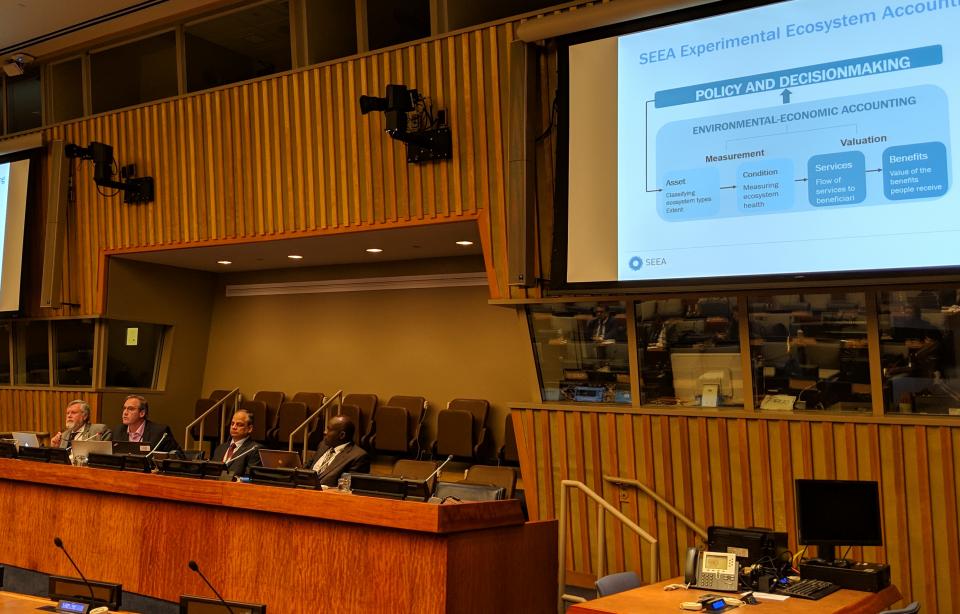SEEA at the 50th UN Statistical Commission

At the 50th Session of the UN Statistical Commission, held at UN Headquarters from 5 to 8 March 2019, the United Nations Committee of Experts on Environmental-Economic Accounting (UNCEEA) presented the progress made over the past year. The Committee’s report was well received, with several key points stressed. In terms of the revision of the SEEA EEA, the transparency and inclusivity of the revision process was praised for allowing experts from different disciplines to contribute their expertise. The Commission also requested the Committee of Experts to continue its work in mainstreaming the use of the SEEA for policy processes, biodiversity in particular, in view of the adoption of the Post-2020 Biodiversity Agenda. Furthermore, the importance of disseminating existing SEEA databases was reiterated as the Commission commended the progress made in developing global SEEA databases and requested to scale up the efforts to develop global SEEA databases for water.
In addition, several experts from the community presented at the side event, Natural Capital Accounting: Connecting the Pillars of Sustainability, to discuss natural capital accounting (NCA). Hosted by the UNCEEA, the side event was an important opportunity for parties to share experiences of compiling ecosystem accounts and incorporating NCA into decision-making.
In his opening remark, Mr. Elliot Harris (Chief Economic of the United Nations and Assistant Secretary-General for Economic Development, DESA) highlighted the contributions the statistical community has made to advancing NCA with the SEEA. He encouraged further uptake of the SEEA as well as increased partnerships to ensure that the SEEA continues to draw from policy, scientific and economic communities. He also stressed the importance of engagement with the user community for increasing awareness and uptake of NCA, a message that was seconded by Ms. Mariana Kotzeva, Director-General of Eurostat.
The side event also showcased country experiences from two partner countries of the E.U.-funded Natural Capital Accounting and Valuation of Ecosystem Services (NCAVES) project– Brazil and India. With the goal of advancing the knowledge agenda on environmental-economic accounting, the NCAVES project has initiated pilot testing of the SEEA EEA five partner countries (Brazil, China, India, Mexico and South Africa). Mr. Shri Pravin Srivastava, Chief Statistician of India, highlighted some of the current activities under the project, including biodiversity and soil accounts. In particular, he highlighted the relevance of soil accounts for India, where more than 250 million earn their livelihoods from agriculture. In addition, Mr. Roberto Olinto, former president of the Brazilian Institute of Geography and Statistics (IBGE), showcased Brazil's work on water, land, forest, energy and mineral accounts and stressed the importance of creating user-friendly dissemination materials. Dr. Sam Koojo from the Ministry of Finance of Uganda also shared Uganda's experience with NCA and how the accounts have been used by the Ugandan government in areas such as biodiversity, through the Uganda National Biodiversity Strategy Action Plan.
